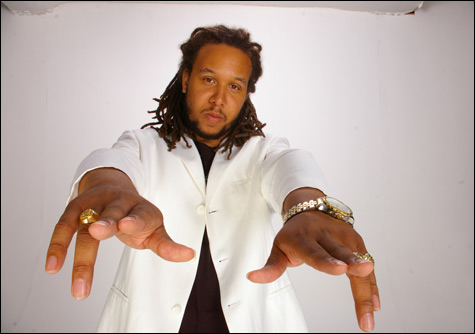While the Western Front has been the rare constant, Boston's reggae community has for the most part been nomadic — always relying on the same word of mouth on which the Cambridge staple built its rep. (Gilmore used to have a crude Web site, but didn't bother renewing his URL and now has no online presence whatsoever.) The earliest mega tours came through Paul's Mall and the old Boston Music Hall on Tremont Street, while in the 1980s major draws generally rocked the Channel in Fort Point. After the latter closed in 1991— around the time the dancehall reggae subgenre caught fire — the energy mostly transferred to the Windsor Cricket Club in Mattapan, where giants including Shabba Ranks, Shinehead, and Super Cat made their Boston debuts.
Perhaps the most cherished recurring live reggae bill came every Sunday night at Bill's Bar, where Kyle Russell's band Dub Station backed hundreds of singers in its 13-year run, up through last year. After that stint, Russell's group — which has also collaborated with such respected artists as Abijah and Jus Goodie on US and Jamaican tours — sporadically swelled Bill's until its sudden closing this past March. "I moved to Boston in 1986, when it was known as the place for reggae," says Brazilian-schooled Yale grad Russell, who, in the past few months, has begun to expand his KRucial Reggae promotion and management venture into California. "Even though reggae has always suffered from reverse colonialism — in that people automatically consider it better if it comes from somewhere else — there's a continued momentum around Boston."

As much as reggae events are known to insiders as refuges for peace and grinding, the scene has been approached with much caution by club owners. Many artists stress that the few unfortunate incidents involving bloodshed in the past 30-or-so years are relatively insignificant; but regardless of specific circumstances, homicides have immediately preceded the closing of several landmarks. The Windsor shut down in 1994, after dancehall luminary Early B was murdered on stage. Skycap Plaza in Roxbury — where such international stars as Beenie Man, Bounty Killer, Capleton, and others flaunted early cuts and monstrous sound systems, and where local artists, including Lady Lee, nurtured their performance chops — went under following the shooting of a security guard there in 1997. Four years later, a 19-year-old Mattapan resident was shot and killed outside a reggae show at the Rhythm and Spice bar and restaurant in Cambridge. And the Caribbean Cultural Center (better known as 3Cs) on Blue Hill Avenue in Roxbury showcased the likes of Mr. Vegas, Lady Saw, and Sean Paul — until a 2006 murder spoiled the fun there, too. (The format switched to mostly 18-and-under events, and has recently closed.)
"Bad things have happened," says Rodigan, who currently holds down Fridays at Kays Oasis in Dorchester, as well as multiple other parties. "But it's important to remember that, in most cases — like with Early B — that was a gang beef from New York being played out here in Boston. We're also living in neighborhoods where guns and murders happen, so the attitude is that hip-hop and reggae can't happen without violence. It doesn't help that police turn their lights on — and make it look like a crime scene — every time they come into a club on Blue Hill to ask someone to move a double-parked car."
In a sign that Boston reggae is shedding the violent stereotypes with which it has been associated — and exploding harder than ever before — is the frequency of 1000-plus person spectacles that has steadily increased in recent years. Lion Entertainment has thrown multiple sellouts at the Roxy and Club Lido in Revere; Ingenius Concepts, run by cousins Paul and Rich Parara — working with Live Nation — have attracted such touring headliners as Burning Spear and Gregory Isaacs, first to the Paradise and now also to the House of Blues.
"The scene is still growing, despite the faces changing every four or five years because of the college kids coming and going," says Rich Parara. "Every weekend, there are at least three reggae or soca [a Trinidadian tangent that blends calypso and cross-rhythms] shows — there are more reggae fans here than there are hip-hop fans. Outside of New York, I'd say that Boston is the largest market on the East Coast — it has been for at least 10 years. Especially with the college kids. When you combine that with the Caribbean market, that's all you need."

MIGHTY HOT: North Shore native Mighty Mystic packed the Paradise in February, and is releasing a new record in September. |
All in the family
Scenesters like Parara and Rodigan will be the first to boast that Boston helps set the pace for Atlantic-coast reggae, but they do not ignore the fact that black artists are unfairly discriminated against by some club owners. Whether or not tabloid-size scandals involving high-profile murders have haunted the scene, there is a pressing venue shortage that has no foreseeable solution. Since most venues don't exactly have open arms for the type of product that Rodigan pushes, the veteran selector adjusts his schedule according to whichever ones welcome his riddims. In the past, he has held court at halls ranging from Skycap to the 3Cs; these days he's consistent at Lido, Kays, the Roxy, and the Dublin House, where he's smashed every Wednesday since 1997.